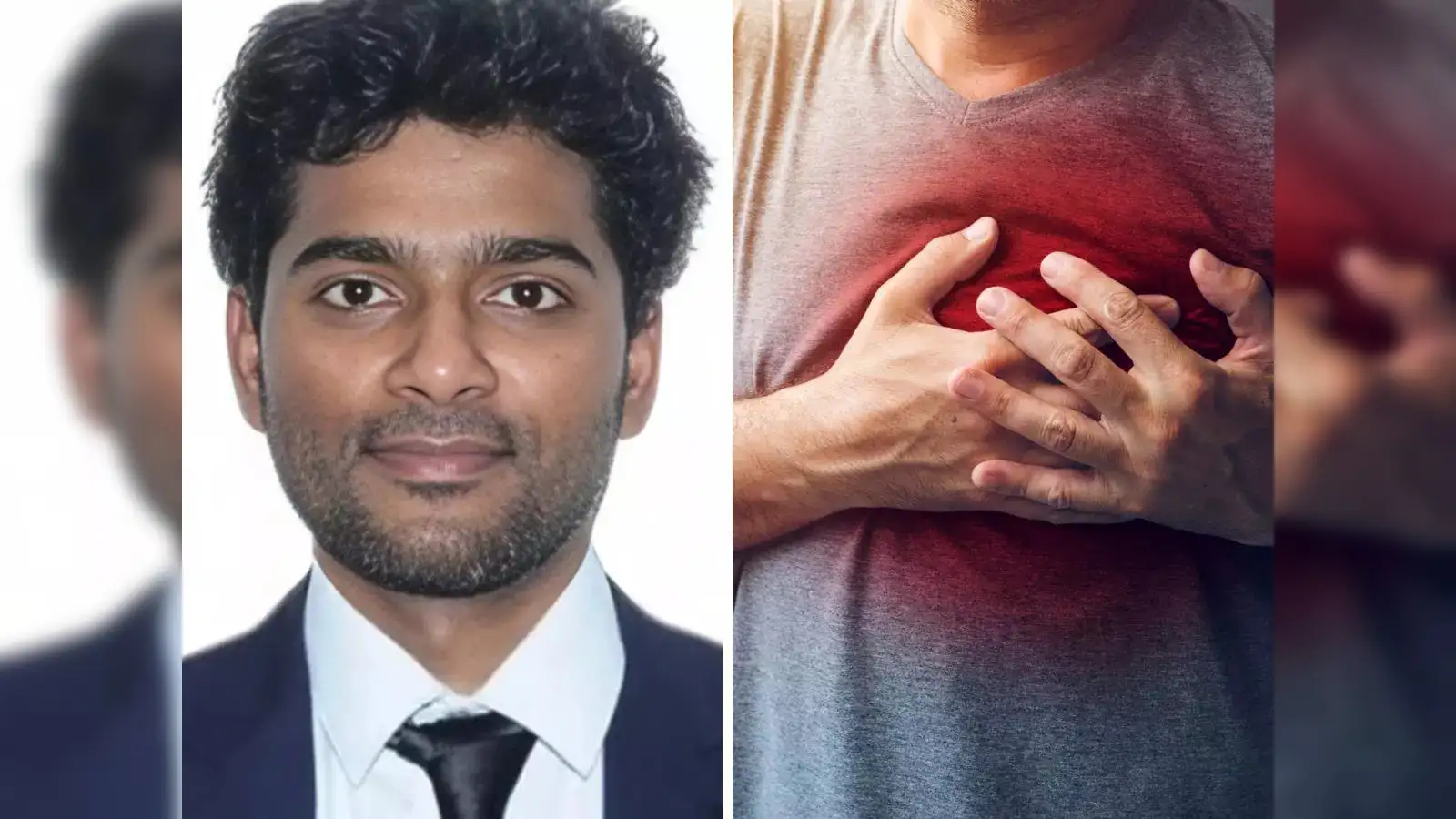In a tragic and deeply unsettling incident, a 39-year-old cardiac surgeon, Dr Gradlin Roy, collapsed during morning ward rounds at Saveetha Medical College and Hospital in Chennai and could not be revived, despite the swift and desperate efforts of his colleagues.
Dr Roy’s death has triggered nationwide concern, not only due to the loss of a dedicated healthcare professional but also because it reflects a disturbing pattern young doctors, some as early as their 30s, are increasingly falling victim to sudden cardiac arrest.
Dr Sudhir Kumar, a neurologist based in Hyderabad, shared details of the intense resuscitation measures taken to save Dr Roy. “Colleagues fought valiantly CPR, urgent angioplasty with stenting, intra-aortic balloon pump, even ECMO. But nothing could reverse the damage from a massive cardiac arrest due to a 100% left main artery blockage,” he posted on social platform X.
The young surgeon, known for treating complex cardiac cases, leaves behind his wife and a small child.
A Silent Crisis in the Medical Community
The tragedy has prompted medical professionals to speak out about the growing number of sudden cardiac events among younger doctors. Dr Kumar emphasised that this is not an isolated incident, but part of a wider crisis building within the medical fraternity.
“The irony is stark: those who dedicate their lives to saving others’ hearts are often neglecting their own,” he noted.
Many doctors, he said, operate under extreme physical and mental stress, with shifts that extend well beyond 12 hours and often push past 24 without proper sleep. The impact of long hours, high-stakes decision-making, and medicolegal risks accumulate over time, contributing significantly to heart health deterioration.
Lifestyle Choices Add to the Risk
Beyond stress and long working hours, other lifestyle factors compound the risk of cardiac disease. Dr Kumar explained that unhealthy eating habits, a sedentary routine, and skipping regular health check-ups are common among doctors.
“Many doctors tend to neglect preventive care by postponing their own health check-ups and ignoring early warning signs,” he warned.
He pointed out that doctors may spend long hours either standing in operation theatres or sitting through consultations, leaving little or no time for physical activity. Meals are often irregular, reliant on hospital food, and accompanied by high caffeine consumption.
Mental health also plays a role. Burnout, emotional exhaustion, anxiety, and depression — conditions frequently overlooked in the medical profession — contribute to the rising incidence of cardiac problems. Additionally, higher rates of smoking and alcohol use among some doctors further exacerbate the issue.
National Reaction and Online Response
Dr Kumar’s post titled “When the Healer Falls: A Wake-Up Call for Doctors’ Heart Health” went viral on social media, drawing widespread sympathy and serious concern.
One user commented, “When doctors have sleep deprivation, how are they able to do justice with patients? Pilots have compulsory rest time. Why can’t doctors have it?” Dr Kumar responded: “Sleep-deprived doctors can make errors in diagnosis and treatment. However, many doctors, especially juniors, have no choice of taking off from work when sleep-deprived.”
Others offered condolences and highlighted how this issue extends beyond healthcare workers, affecting many urban professionals struggling with stress and poor lifestyle choices.
Experts Warn: Fitness Doesn’t Always Equal Heart Health
Echoing the concern, renowned cardiac surgeon Dr VV Bashi recently addressed the broader trend of young Indians suffering fatal cardiac arrests. He attributed the rise to a mix of early-onset diabetes, poor dietary habits, increasing obesity, high blood pressure, and lack of exercise.
He warned that even individuals who appear physically fit aren’t immune. “Several cases have come to the fore in recent months wherein people have collapsed and died inside the gym,” he said. According to him, overexertion, undetected heart issues, and seemingly minor symptoms like fatigue or chest discomfort are often overlooked sometimes with fatal consequences.
A Call for Urgent Change
This incident has reignited a conversation around working conditions in the medical field and the need for institutional reforms. Dr Kumar urged his colleagues to take a step back when overwhelmed.
He concluded his post with a stark reminder: doctors must learn to say “No” when overworked for the sake of their own health, their patients, and their families.


